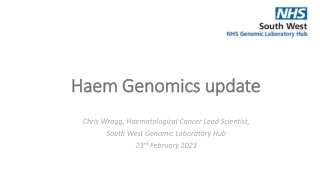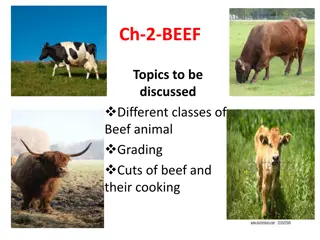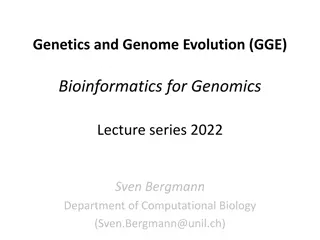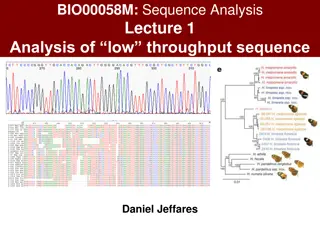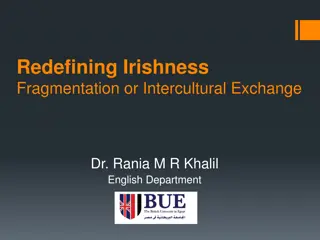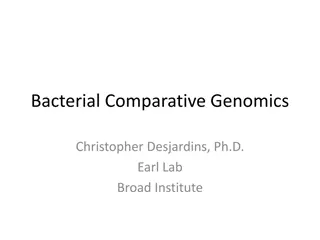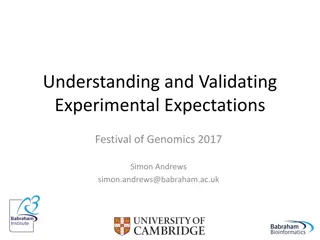Update on Irish Government's Beef Data Genomics Programme
The spending review for 2022 provides key findings and recommendations on the Beef Data Genomics Programme in Ireland. The analysis shows positive trends in genetic gain, with recommendations for a new iteration focusing on data-driven schemes and holistic approaches to improve sector sustainability and efficiency.
Uploaded on Oct 07, 2024 | 0 Views
Download Presentation

Please find below an Image/Link to download the presentation.
The content on the website is provided AS IS for your information and personal use only. It may not be sold, licensed, or shared on other websites without obtaining consent from the author. Download presentation by click this link. If you encounter any issues during the download, it is possible that the publisher has removed the file from their server.
E N D
Presentation Transcript
IGEES Irish Government Economic and Evaluation Service Spending Review 2022 Beef Data Genomics Programme - Update Anthony Cawley and Charlie Banks Department of Agriculture Food and the Marine December 2022
Spending Review 2022 Overview, Aims & Objectives Overview The Beef Data Genomics Programme (BDGP) has been operating in Ireland since 2015 with the dual objectives of improving the genetic merit of the national beef herd and lowering the intensity of GHG emissions. A spending review paper published in 2019 pointed to initial positive trends and this paper aims to update that analysis by incorporating most recent data. Aims and Objectives The aim of the updated paper is to inform policy design as Ireland develops its new scheme under the Common Agricultural Policy starting in 2023. The paper follows the same approach as the previous analysis to ensure consistency, and also provides a sensitivity analysis to project future gains. 2 Rialtas na h ireann | Government of Ireland
Spending Review 2022 Key Findings Key Policy Relevant Findings The results show that trends in genetic gain have been steadily increasing for BDGP herds over the duration of the scheme as evidenced by the key underpinning data. Positive spillovers to non-BDGP herds are also evident, but at a slower rate of gain. All key performance indicators have progressed in line with the objectives and findings from the previous review. The analysis shows that the future herd will have a lower environmental footprint as the genetic gains accrue which will be a cumulative and permanent improvement. The key recommendations include the continuation of a scheme to ensure that key data is continued to be collected to underpin the future development of the sector. Merging genetic gains with performance related data can accelerate progress. 3 Rialtas na h ireann | Government of Ireland
Spending Review 2022 Key Findings Recommendations AnewiterationofBDGPisneededtoensurecontinuedimprovements,withastrongemphasisonadata-drivenscheme which incorporates areas such as continued genotyping, increased use of higher-rated animals, and recording of more dataoncommercialfarms. Merge the data collected under BDGP with performance-related data such as that collected under BEEP-S, to ensure a holistic approach to improving sector sustainability. This can help improve whole-of-life performance, leading to reducedageofslaughterandotherefficiencieswhichcanprovideeconomicandenvironmentalbenefits. Leverage Knowledge Transfer (KT) to improve and increase the impact of the Carbon Navigator and other tools at farm level. Continued research on environmental traits within the urostarIndex, such as through direct selection for methane traits to identify potential methods to further develop environmental performance improvements. Similarly, further analyses into areas such as younger finishing age, informed by the data, could help to accelerate gains. Continue to drive progress to achieve heightened level of ambition on genetic gain to meet the dual objectives of economicandenvironmentalefficiencyimprovements,includingfornewentrantstomeetschemerequirements. 4 Rialtas na h ireann | Government of Ireland
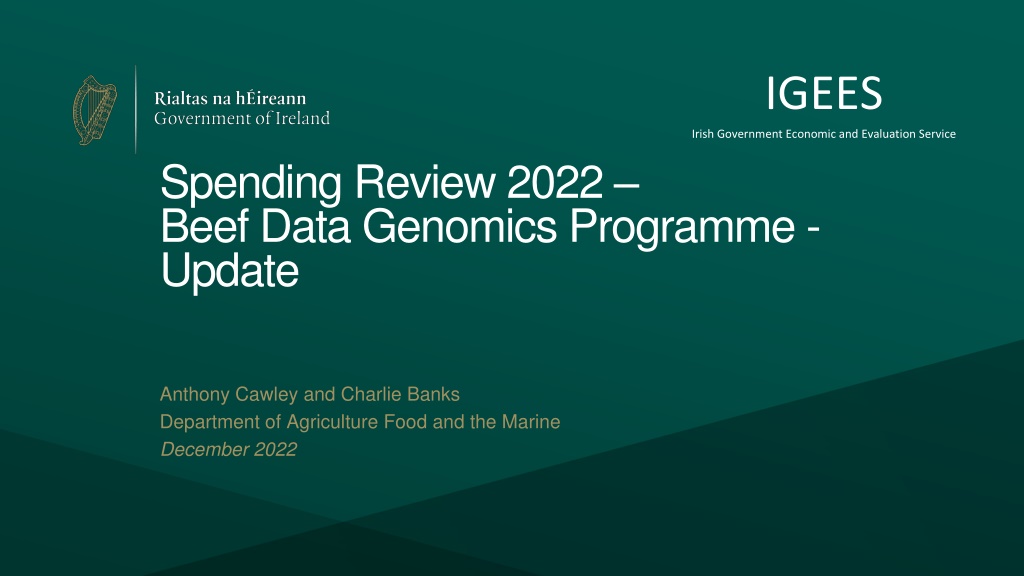
 undefined
undefined


 undefined
undefined



